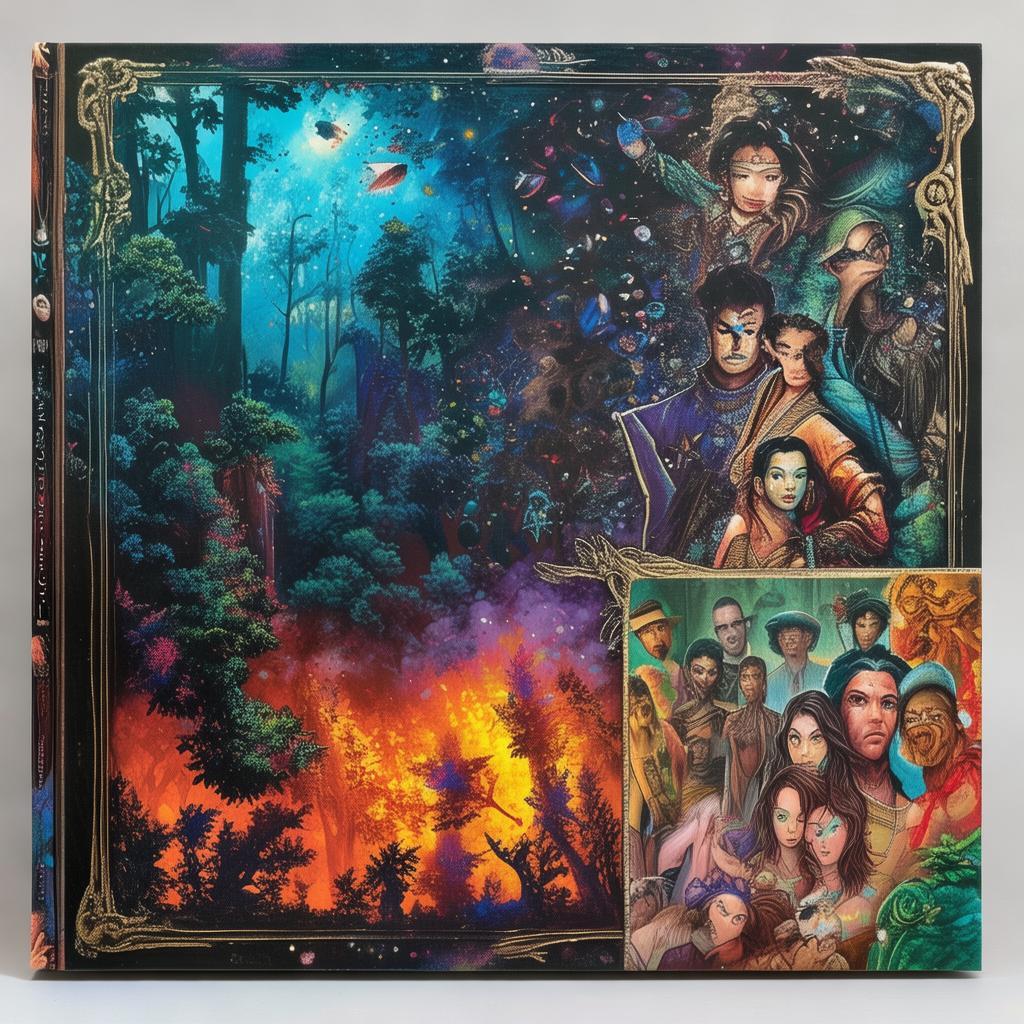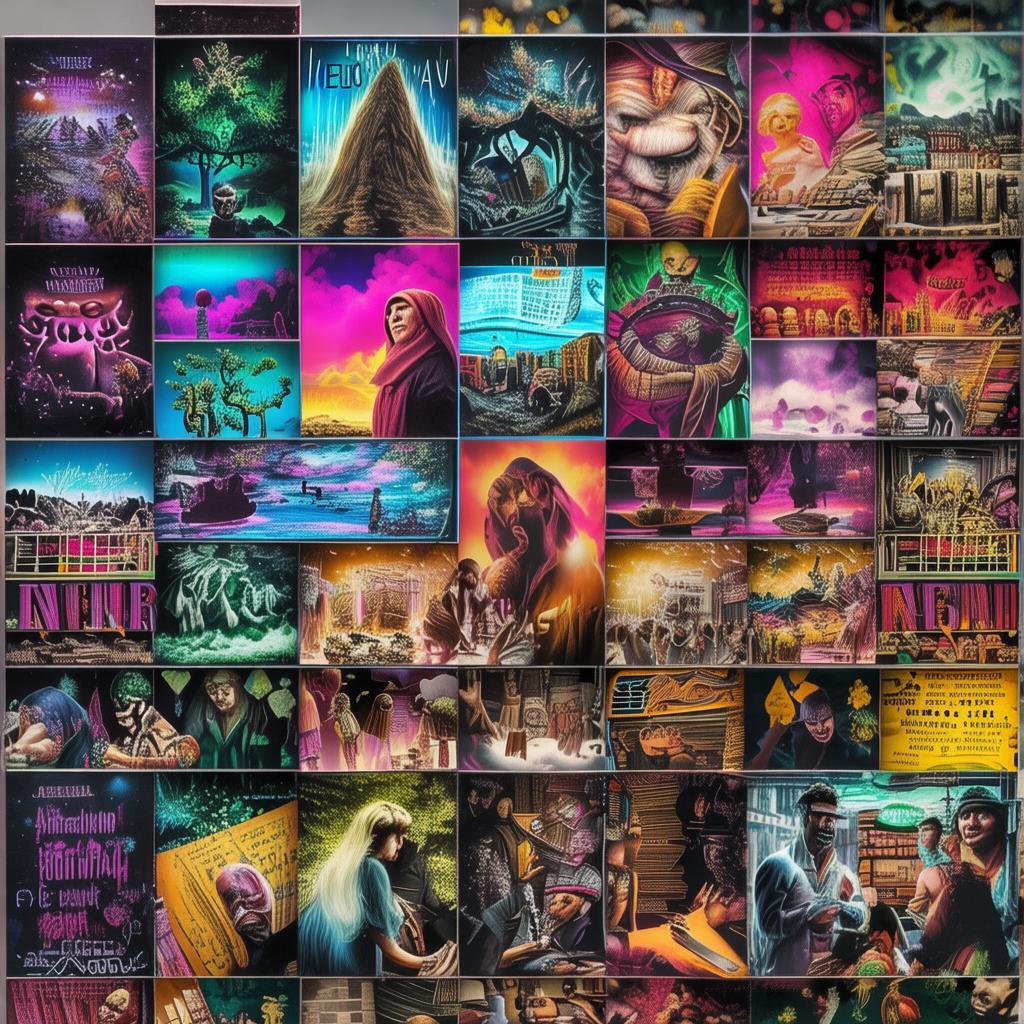The Zen Sutra: The Wisdom of Lushu Huineng
In the tranquil depths of the ancient temple of Clouds and Mist, a young monk named Lushu Huineng found himself alone with the morning's first light. His eyes, though untrained, held a spark of curiosity that had been smoldering since he took his vows. Today, he would embark on a journey that would challenge everything he knew about the world and himself.
Lushu had been assigned to the temple's library, a vast repository of ancient scrolls and tomes, but it was the Zen Sutra that captured his attention. It lay on the table, its pages worn from countless readings, and as he opened it, a single sentence jumped out at him:
"To attain enlightenment, one must let go of the ego."
Lushu's heart raced. Could it be that simple? He had spent years meditating, seeking the truth, but the more he searched, the more elusive it seemed. This sentence, however, offered a clear path. Or did it?
The temple's abbot, a wise old man named Zenji, had been Lushu's mentor. He had taught him that the path to enlightenment was not a straight line but a labyrinth of choices. As Lushu pondered the Zen Sutra, he heard a soft knock at the door. It was Zenji.
"Come in," Lushu called, his voice barely above a whisper.

Zenji entered, his eyes twinkling with a knowing smile. "You've been reading the Sutra," he said, taking a seat opposite Lushu.
Lushu nodded, feeling a mix of excitement and trepidation. "I have. It speaks of letting go of the ego. But what if that's impossible? What if the ego is what defines us?"
Zenji chuckled softly. "Then let us test that theory."
He handed Lushu a small, intricately carved wooden box. "Within this box lies a puzzle. Solve it, and you may understand the nature of your ego."
Lushu took the box, his fingers trembling slightly. He opened it to reveal a single, intricately carved piece of wood. It was beautiful, but there was no puzzle. Just one piece.
He turned to Zenji, his confusion evident. "This doesn't make sense."
Zenji nodded. "The puzzle is not about the piece, but about the process. Look at the piece closely."
Lushu did as instructed, examining the wood for any hint of a puzzle. But there was none. He looked up at Zenji, his eyes wide with confusion. "I see nothing."
Zenji smiled. "That is the nature of the ego. You seek the puzzle, the answer, the enlightenment, but it is all within you. You are the puzzle, Lushu. You are the answer."
Lushu's mind raced. He realized that he had been searching outside himself for the truth, for enlightenment, when it was always inside. But the realization came with a cost.
One night, as Lushu meditated, he heard a sound. It was a voice, soft and distant, speaking in riddles. "The river flows, but the water never changes. The tree is the same, but the leaves fall. The path is clear, but the destination is unknown."
Lushu sat up, his mind reeling. He recognized the voice—it was his own, from a time before his journey began. The voice continued, "To understand the nature of change, one must let go of the past."
Lushu's heart sank. He understood that the voice was his ego, his past, trying to hold onto what he had once been. He had to let it go.
The next day, Zenji called Lushu to his chamber. "You have made a significant step on your journey," he said. "But there is still much to learn."
Lushu nodded, feeling a sense of hope and fear. "What must I do now?"
Zenji stood and walked to the window, gazing out at the serene garden. "You must confront your fears. You must face the darkness within you."
Lushu's eyes widened. "The darkness?"
Zenji turned, his eyes filled with compassion. "Yes, the darkness. It is the part of you that seeks to control, to dominate, to consume. Confront it, and you will find the light."
Lushu took a deep breath, feeling the weight of Zenji's words. He knew he had to confront the darkness, but how?
The following days were a blur of meditation, reflection, and confrontation. Lushu faced his fears, his doubts, his deepest regrets. He realized that the darkness was not something external but a reflection of his own insecurities and fears.
One evening, as the sun dipped below the horizon, casting long shadows across the temple, Lushu sat in his meditation chamber. He felt a presence, a warmth that seemed to emanate from the very walls. It was his ego, his past, reaching out to him.
"You have done well, Lushu," the voice said. "But you have not yet fully let go."
Lushu closed his eyes, feeling the voice's words resonate within him. "How can I let go when I don't even know what I am letting go of?"
The voice chuckled softly. "The ego is a mirage, a false construct. It is not who you are, but what you believe yourself to be. Let it go, and you will find your true self."
Lushu took a deep breath, feeling the weight of the ego lift from his shoulders. He opened his eyes, and the world seemed different. The trees were not just trees, the birds not just birds. They were a part of him, a part of the universe.
He looked at Zenji, who stood by the door, his eyes filled with pride. "I have let go, Abbot."
Zenji nodded. "Then you have found enlightenment."
Lushu smiled, feeling a sense of peace he had never known before. He had faced his fears, his doubts, his regrets, and found that the true path to enlightenment was within himself.
As he walked back to his chamber, the Zen Sutra lay open on his bed. He picked it up, reading the sentence that had started it all:
"To attain enlightenment, one must let go of the ego."
He realized that it was not the sentence that was important, but the journey. The journey of self-discovery, of confronting one's fears, of letting go of the past, and finding the light within.
In the quiet of the temple, Lushu Huineng found his enlightenment. And with it, he found the wisdom to share his journey with all who would listen.
The story of Lushu Huineng and the Zen Sutra spread throughout the temple, resonating with the monks and visitors alike. It became a tale of courage, self-discovery, and the power of letting go. As word of the story spread, it sparked discussions, challenges, and personal journeys, making it a timeless piece of wisdom that continues to inspire and enlighten.
✨ Original Statement ✨
All articles published on this website (including but not limited to text, images, videos, and other content) are original or authorized for reposting and are protected by relevant laws. Without the explicit written permission of this website, no individual or organization may copy, modify, repost, or use the content for commercial purposes.
If you need to quote or cooperate, please contact this site for authorization. We reserve the right to pursue legal responsibility for any unauthorized use.
Hereby declared.









